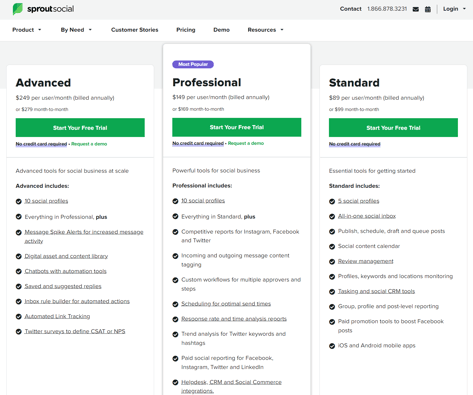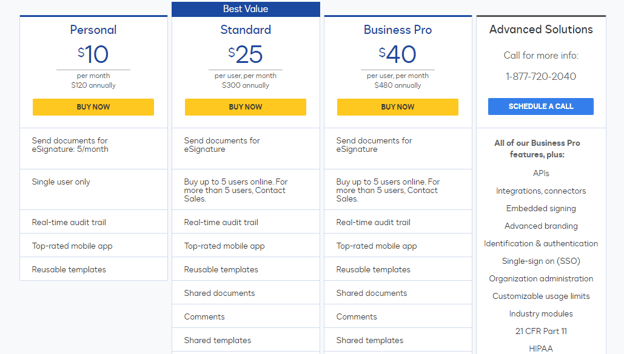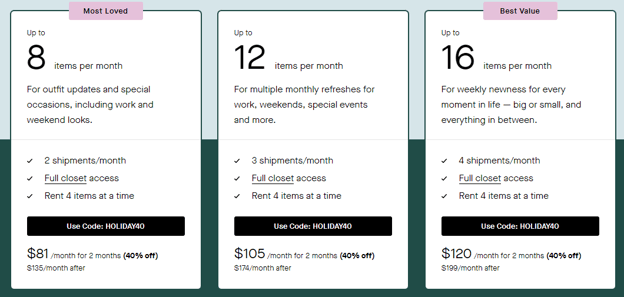A one-size-fits-all approach generally isn’t as appealing as a personalized experience. This can be true for the merchant as well as the consumer. If you are selling tickets to a concert, for instance, having a cheaper general admission ticket and a more expensive VIP treatment ticket would probably suit you best.

This is an everyday example of price tiering that gives the seller more opportunities to convert leads and the buyer more options to fit the experience and price they desire.
What is tiered pricing?
Merchants who offer a variety of pricing plans or packages to their prospects are likely operating on a tiered pricing model. Tiered pricing offers customers a variety of prices — each based on certain features, benefits, or services. These tiers allow customers to choose the option that best accommodates their needs and often incentives them to move up in tiers over time.

Tiered Pricing Examples
Most price tiering models have three different tiers that range from some version of "basic" to "plus." Sometimes, tiers can vary so much that they have different target audiences — think "personal" vs. "business" packages.
Tiered pricing models work especially well with memberships, event tickets, and services — but they can also be applied to a much wider range of industries.
HubSpot Price Tiering

HubSpot’s Marketing Hub software is divided into the standard three tiers. The most unique aspect of this example is that each level has an extra customizable option within it. You have the option to add more marketing contacts to your package rather than jump a tier before you’re ready. This offers even more flexibility for business owners by letting them spend only for what they need.
DocuSign Price Tiering

DocuSign offers four different tiers, each with an annual or monthly pricing option. They differentiate between audiences that are likely to use their service for personal use versus for business use — offering more features to the latter. They call out their "Standard" option as one that will fit most businesses by labeling it their "Best Value" tier, making it an easy choice for on-the-fence prospects.
Rent the Runway Price Tiering

Rent the Runway offers designer clothing and accessories at more affordable prices since the items are rented and returned. They offer the standard three tiers — each differentiated by price, number of items per month, and number of shipments per month. Underneath each tier is a description that helps customers understand which option will best fit their needs.
Tiered Pricing Model
There is a lot of flexibility in how you can set up tiered pricing for your business. Most businesses offer three different tiers, as described in the video above — but that depends on what makes the most sense for you and your customers. Whether you are selling subscriptions, services, or products, this simple model should help you configure your price tiering.
When you think about your pricing tiers, you should consider the following three levels or packages:
Essentials
This introductory tier offers the most basic level of benefits. Sometimes this tier acts more as an incentive for new customers to start engaging with your business than a long-term option. Other times, it offers enough to meet some customers’ needs on an ongoing basis without making them feel like they’re overspending on a non-critical purchase.
Standard
The medium-level tier should appeal to your average customer or the widest audience, making it the most common choice. It generally includes what is offered in the lower tier and expands on it. The standard benefits should offer a clear understanding of what your business has to offer.
Premium
This upgraded tier should offer the “VIP experience” of your business. It may include a higher number of units, a more personalized service, special discounts, or other privileges — plus everything in the lower tiers. This is essentially the most you can offer to customers for the highest price.
Tiered Pricing Template
It can be difficult to decide how to structure your business’ tiered pricing offerings. Start with a list of everything your business can offer. Then, identify the value of each offering from least to most and how many resources they require. Configure them into the most logical categories or groupings for your customers. Check out this simple template below for more of an idea.
Tier 1
- Low Number of Items
- Low Amount of Features
- Lowest Cost
Tier 2
- Higher Number of Items
- Higher Number of Features
- Medium Cost
Tier 3
- Highest Number of Items
- Highest Number of Features
- Highest Cost
How Tiered Pricing Can Work for You
Price tiering gives your customers flexible options so they can choose what fits their needs and budget. This allows your business to appeal to a larger and more diverse audience. However, don’t be pressured into the benefits too quickly. Take time to consider your business and your product or service and how well this pricing model could be applied.
Pricing Strategy
![B2B Pricing Models & Strategies [+ Pros and Cons of Each]](https://2406023.fs1.hubspotusercontent-na1.net/hubfs/2406023/Imported_Blog_Media/b2b-pricing-models-and-strategies.jpg)


.jpg)
.jpg)


.jpg)
.jpg)
.jpg)